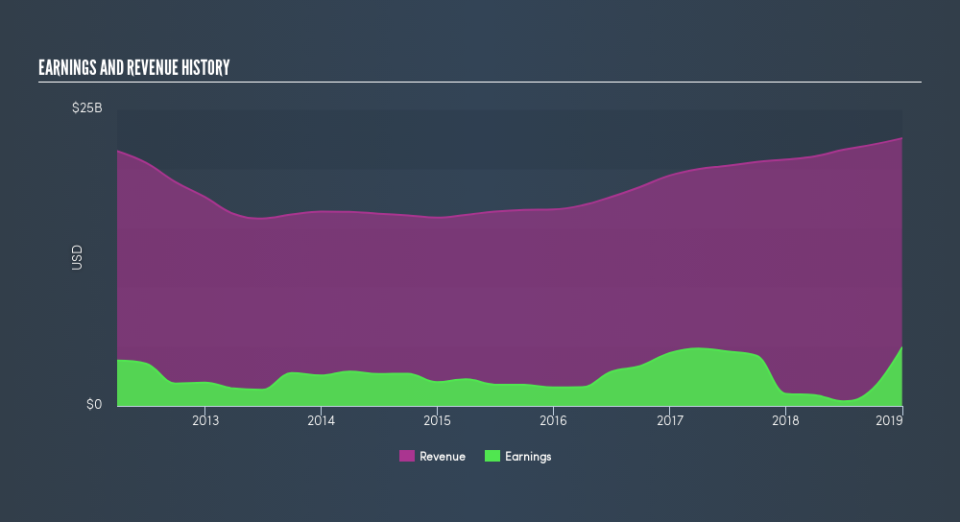Some Bristol-Myers Squibb (NYSE:BMY) Shareholders Are Down 25%

The simplest way to benefit from a rising market is to buy an index fund. But if you buy individual stocks, you can do both better or worse than that. For example, the Bristol-Myers Squibb Company (NYSE:BMY) share price is down 25% in the last year. That’s disappointing when you consider the market returned 3.0%. Taking the longer term view, the stock fell 21% over the last three years. Unhappily, the share price slid 2.9% in the last week.
Check out our latest analysis for Bristol-Myers Squibb
While the efficient markets hypothesis continues to be taught by some, it has been proven that markets are over-reactive dynamic systems, and investors are not always rational. By comparing earnings per share (EPS) and share price changes over time, we can get a feel for how investor attitudes to a company have morphed over time.
During the unfortunate twelve months during which the Bristol-Myers Squibb share price fell, it actually saw its earnings per share (EPS) improve by 392%. It could be that the share price was previously over-hyped. It’s fair to say that the share price does not seem to be reflecting the EPS growth. So it’s well worth checking out some other metrics, too.
Bristol-Myers Squibb managed to grow revenue over the last year, which is usually a real positive. Since the fundamental metrics don’t readily explain the share price drop, there might be an opportunity if the market has overreacted.
The graphic below shows how revenue and earnings have changed as management guided the business forward. If you want to see cashflow, you can click on the chart.
We like that insiders have been buying shares in the last twelve months. Having said that, most people consider earnings and revenue growth trends to be a more meaningful guide to the business. This free report showing analyst forecasts should help you form a view on Bristol-Myers Squibb
What About Dividends?
When looking at investment returns, it is important to consider the difference between total shareholder return (TSR) and share price return. Whereas the share price return only reflects the change in the share price, the TSR includes the value of dividends (assuming they were reinvested) and the benefit of any discounted capital raising. Arguably, the TSR gives a more comprehensive picture of the return generated by a stock. We note that for Bristol-Myers Squibb the TSR over the last year was -23%, which is better than the share price return mentioned above. And there’s no prize for guessing that the dividend payments largely explain the divergence!
A Different Perspective
Investors in Bristol-Myers Squibb had a tough year, with a total loss of 23% (including dividends), against a market gain of about 3.0%. However, keep in mind that even the best stocks will sometimes underperform the market over a twelve month period. On the bright side, long term shareholders have made money, with a gain of 1.8% per year over half a decade. If the fundamental data continues to indicate long term sustainable growth, the current sell-off could be an opportunity worth considering. Investors who like to make money usually check up on insider purchases, such as the price paid, and total amount bought. You can find out about the insider purchases of Bristol-Myers Squibb by clicking this link.
Bristol-Myers Squibb is not the only stock insiders are buying. So take a peek at this free list of growing companies with insider buying.
Please note, the market returns quoted in this article reflect the market weighted average returns of stocks that currently trade on US exchanges.
We aim to bring you long-term focused research analysis driven by fundamental data. Note that our analysis may not factor in the latest price-sensitive company announcements or qualitative material.
If you spot an error that warrants correction, please contact the editor at editorial-team@simplywallst.com. This article by Simply Wall St is general in nature. It does not constitute a recommendation to buy or sell any stock, and does not take account of your objectives, or your financial situation. Simply Wall St has no position in the stocks mentioned. Thank you for reading.

